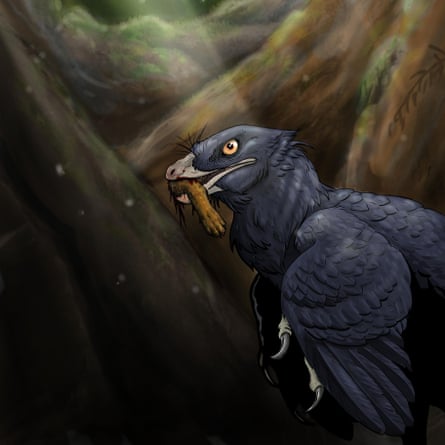It may have been a pressing fear for the fictional characters in the 1993 movie Jurassic Park, but scientists believe they’ve uncovered the first known incident of a mammal being eaten by a dinosaur.
However, the 120-million-year-old fossil is not a human ancestor, but rather an animal foot inside the thorax of a small, feathered dinosaur, known as Mecoraptor.
The paleontologists said their findings, which were published in the Journal of Vertebrate Paleontology, are “the first record of a dinosaur eating a mammal.”

Dr David Hone of Queen Mary University of London, first author of the study, said: “It’s very rare to find examples of food inside dinosaurs, so every example is really important because it provides direct evidence of what they ate.
“While these mammals were by no means ancestral to humans, we can look back on some of our ancient relatives serving as food for hungry dinosaurs.
“This study paints a picture of a remarkable moment in time — the first recorded of a dinosaur eating a mammal — even if it wasn’t quite as scary as anything else in Jurassic Park.”
Microraptors lived in the ancient forests of what is now China, somewhere between 125 million and 113 million years ago.
While it moves on its feet, experts believe that some species may be capable of directed flight.
They were the size of crows or small cats, and would move from tree to tree preying on small animals.
The specimen was first described more than 20 years ago, in 2000, but researchers said the previous team failed to see the remains of another animal inside the dinosaur.
The analysis suggested that the prey was a mammal the size of a mouse, that lived on the ground and was not a good climber.
Previous research has shown other Microraptor fossils to have non-mammalian food preserved in their stomachs, such as a bird, lizard, or fish.

“Twitteraholic. Total bacon fan. Explorer. Typical social media practitioner. Beer maven. Web aficionado.”
